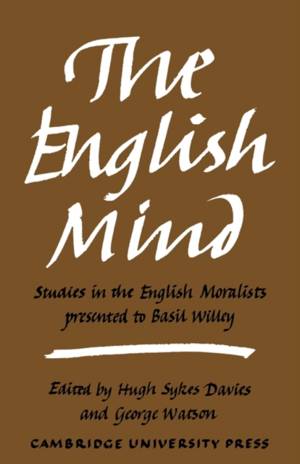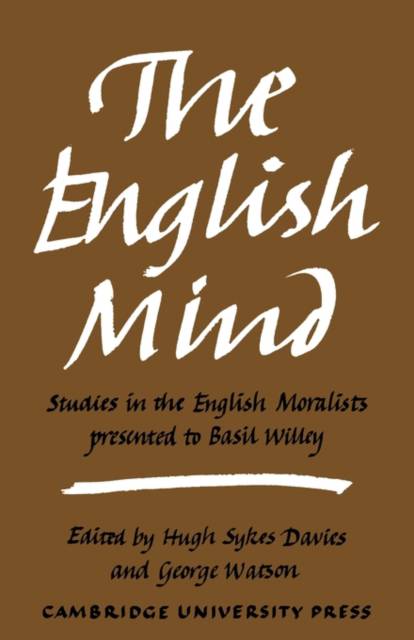
- Afhalen na 1 uur in een winkel met voorraad
- Gratis thuislevering in België vanaf € 30
- Ruim aanbod met 7 miljoen producten
- Afhalen na 1 uur in een winkel met voorraad
- Gratis thuislevering in België vanaf € 30
- Ruim aanbod met 7 miljoen producten
Zoeken
The English Mind
Studies in the English Moralists Presented to Basil Willey
Hugh Sykes Davies, George Watson, Sykes Davies Hugh
Paperback | Engels
€ 76,45
+ 152 punten
Omschrijving
This is not a random collection of essays, but a book on a single theme. Written by separate hands, mainly by literary critics at Cambridge, it was planned as a whole and executed with a common purpose: to produce the first literary study of the English moralists of the seventeenth century to the beginning of the twentieth. The authors share two convictions: they believe that the study of literature demands an understanding of whatever moral philosophy is embodied in it; and they believe that philosophical writings are capable of being tested by the techniques of literary criticism. In this book, such works as Bacon's Advancement of Learning, Hobbes's Leviathan, and Hume's Enquiries are viewed as whole works, not as repositories of philosophical propositions, nor as episodes in the history of English thought.
Specificaties
Betrokkenen
- Auteur(s):
- Uitgeverij:
Inhoud
- Aantal bladzijden:
- 312
- Taal:
- Engels
Eigenschappen
- Productcode (EAN):
- 9780521137072
- Verschijningsdatum:
- 25/02/2010
- Uitvoering:
- Paperback
- Formaat:
- Trade paperback (VS)
- Afmetingen:
- 140 mm x 216 mm
- Gewicht:
- 399 g

Alleen bij Standaard Boekhandel
+ 152 punten op je klantenkaart van Standaard Boekhandel
Beoordelingen
We publiceren alleen reviews die voldoen aan de voorwaarden voor reviews. Bekijk onze voorwaarden voor reviews.








